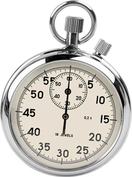Games & Activities for Teaching Languages
| games_and_activities_for_teaching_languages.pdf | |
| File Size: | 591 kb |
| File Type: | |
The following document is a compilation of language games for Indonesian classes edited by Greg Worrell for the Victorian Language Teachers' Association (VILTA) back in 1990. I have taken the liberty to edit, reformat, redraw the graphics and update the language in the document so it better reflects the technology the teachers work with today. Although the majority of activities are aimed at the primary level, there is some activities there to suit all other levels as well.
| indonesian_games__activities.pdf | |
| File Size: | 680 kb |
| File Type: | |
KATLA
ClickKATLA is the Indonesian version of the WORDLE online vocabulary gussing game. despite being given six guesses to figure out the correct response, it is quite a difficult game for non-native speakers of Indonesian. I would still recommend it as an intellectual exercise for senior students with the proviso that they can use a dictionary. Even with a dictionary an element of guesswork and luck is required. The drawback is that this game provides only one word per day but it does provide statistcs on how many players around the world have guessed the mystery word correctly. To access KATLA, click on the image below.
Ayo Bermain
I recommend the blog Ayo Bermain! by Danielle Horne from Helena College in Perth for its wide and varied array of language games suitable for both ESL and MFL learners. Give it a go ... I'm certain you'll find something useful whether it be in the offerings currently on display or in its archives.
Hangman
Hangman is a great, motivational vocabulary-building game, even more so if played interactively online. By clicking on the logo below, you will be taken to probably the best online Hangman game for foreign language learning. This game permits the teacher to create customized vocabulary lists which can be thematically or randomly based. Once the list is created and saved, you will be given both a 'Play Code' and an 'Edit Code' so you can come back and play or edit your list of words anytime. The system will then play consecutive Hangman games in a random order using the vocabulary entered . Saved games that are not played for four weeks become automatically deleted from the server and will have to be recreated from the beginning. Have fun!
P.S. I have placed a sample Hangman game on Indonesian Provincial Capitals onto this site. Remember, if someone does not use it in four weeks, it will automatically be deleted. To play or modify this game you will require the following access codes:
Play Code : hjpabechdjbc
Edit Code : hjpabechdjbccr
Play Code : hjpabechdjbc
Edit Code : hjpabechdjbccr
Online Stopwatch
We all know that students have a competitive spirit and like to outperform each other in games or test their own ability by racing against the clock. Quizlet is one example of a widely-used vocabulary-building activity where students race against the clock. The Online Stopwatch provides you with a tool to set a time limit to your class activities with a loud bell sounding when the time has elapsed. For example, you might play "Speed Dating" where you ask your students to mingle with each other and find out the names, ages and suburbs of as many people as possible in two minutes. To access the Online Stopwatch, click on the stopwatch below.
Naik Apa?
| naik_apa.pdf | |
| File Size: | 685 kb |
| File Type: | |
What To Eat?
| what_to_eat.pdf | |
| File Size: | 1214 kb |
| File Type: | |
Animal Bingo
| animal_bingo.pdf | |
| File Size: | 1216 kb |
| File Type: | |
Bingo Tickets
| bingo_tickets.pdf | |
| File Size: | 2960 kb |
| File Type: | |
Balls and Dice as Teaching Aids in the Classroom
Balls and dice involve several of the key ingredients, namely manipulation, physical movement, and surprise. For some children (or even adults), a ball or large soft die is an unexpected resource and it captures their interest. Accuracy of shot and coordination are not always well developed in primary children, so reminders and a demonstration of how to pass them usually avoids most problems, or alternatively, these activities could take place in the school hall or playground. Very young children should sit in a circle so a ball or die passed, thrown or rolled does not have very far to fall.
Oracy
These games with dice encourage children to listen for particular sounds, words and phrases, as well as to respond to them, perform simple communicative tasks and respond to questions.
Practising language using single words or phrases
A. Add up the dice
- If your school’s resource cupboard has enough dice to give small teams of children two or three small dice each you could play a simple elimination game (or use twin pocket dice**)
- Ask the children to roll the dice and add up the numbers
- Each team tells the rest what their total is and the team with the lowest number goes out. The game continues until only one group remains.
B. Snakes and ladders
- It is possible to create a simple board game using a grid of squares. To practise numbers in the target language, number each square in sequence and, if possible, superimpose snakes and ladders over the grid. This will create a traditional `snakes and ladders` game, or use our Snakes and Ladders Mat**** which is large and colourful
- Organize the class into small groups of about four children and provide them with a grid or mat, counters and a die
- Ask the children to take turns at throwing the die and saying aloud the number, then counting forward that number of squares in the target language. Obviously, landing on a square with a ladder means that they move to the top of the ladder and landing on a snake means they must descend to the tail of the snake.
Hint: (For foreign language classes) To ensure that the target language is used as the counter is moved forward, insist on the rule that if the number is said in English, the player must go back that number of squares. The children always take this very seriously.
C. Throw and say
- As an alternative to numbers on a snakes and ladders board ( activity B), images could be added to some or all of the squares so that every time the children land on an image, they have to say the word or create a sentence using that word.
- If they are unable to do this, they should miss a go.
D. Secret die
- This involves the `key ingredient` of trying to discover a secret, making it a popular game.
- Customize a pocket die** by inserting images such as classroom objects or colours.
- Find a box large enough so that the die can be thrown inside it but remain hidden from view. Empty photocopy paper boxes are ideal and often easily accessible.
- Ask a child in each group to throw the die inside the box.
- The task for the other children is to find out which image is showing upwards. Each child in the group should be allowed one turn at a time to guess what it is (using phrases such as `It is blue` if you are practising colours).
- The first person to discover what the image is, swaps with the thrower and the game starts again.
Hint: To stop any ‘discussion’, choose a tally keeper or use counters, to see who was the most successful.
E. Throw and mime
- As a variation on activity D, you could use images of hobbies or classroom commands in the die**.
- Ask the children to throw the die in the box, and then mime the activity. The other children should be encouraged to guess in the target language what the activity is.
- Alternatively you could ask the child to give an instruction to the rest of the class to do a particular action according to the image on the die.
- Using images of famous personalities or cartoon characters always causes great hilarity especially if you include characters considered to be too young for their ` mature years.
- Once again ask the children to throw the die and then act out the character on the die so that the others have to guess who it is.
Hint: For more able children, there is an opportunity here to practise asking questions as in, Is it a boy? Is he young? etc
Asking and answering questions
F. Pass and answer
It never ceases to amaze how being able to catch and pass something is so motivating - everyone seems to want to do it.
- Dice** can be used to review questions and answers previously practised. This works well at the start of a lesson. Or use Talk Balls*
- The child with the die says the name of another child, asks the question, and then throws it to that person. The child receiving the die answers the question appropriately using the information topmost on the die eg what is your name? or How old are you? etc. The child must answer with whatever is uppermost on the die. This gives the children opportunity to answer using other than their own information.
Hint: Encouraging the throwers to name the child they are addressing so s/he knows die is coming is a good idea, because otherwise the die spends a lot of time on the floor!
G. Lip-reading
- For variety, instead of saying a question aloud and then passing the ball or die (activity F ), try mouthing it silently instead.
- It requires more concentration and focuses the children on mouth shape information, which helps with pronunciation.
H. Dice everywhere
- In order to give as many children as possible an opportunity to practise at one time, divide the class into groups and repeat activities F or G using several balls* or dice**.
- Forfeits, such as `stand on one leg`, `use one arm`, etc. could be given to anyone who drops the ball or die or can’t answer the questions.
I. Musical balls*/dice***
- If you would prefer the children not to throw the ball or die, try playing some music in the target language as the children pass it around (see activity F).
- The child holding the ball or die when the music stops, asks the person of his/her choice (or to their left/right etc) a question related to the picture at the top of their die (or where their left thumb has handed on the Talk Ball) eg what colour is the shirt?
J. Make a sentence or question
- This is a good activity for the more able/ older students (or even adults) who are ready for some grammar. Using twin packs of the smaller pocket dice***, put eg pronouns into one die eg, saya/Lei/ er etc and verbs (infinitives) into the other eg suka/ avere/ leben etc. The students must throw the dice and make a sentence using the correct form of the verb, plus give an ending to the sentence. ( A variation could be that they need to make a question or, using another die, put in a time marker eg tomorrow, yesterday, next week, which practices tenses in languages where this is applicable.)
Listening for specific words and phrases
K. Grab the Die
- This is a good game for the hall or playground and it is better to use the larger size die** for this game.
- Divide the class into two equal teams.
- Assign a different number, item of vocabulary or phrase to every child on one team.
- Use the same numbers or items to name every child on the opposing team, so you end up with each number or item assigned to one child per team.
- Line up the two teams facing each other, about five or six metres apart. Use lines marked on the ground, if possible, as this help to keep the teams equidistant.
- Place a die on the ground halfway between two teams.
- Call out an item or number, or show a corresponding flashcard and the child from each team who is responsible for that word or phrase rushes to pick up the die first and get back to his/her place in the line before being caught by the other child. This earns one point for that team.
Hint: If both children arrive at the die at the same time, tell the children that it is better to wait before they seize it as the one with the die will immediately be caught. Tell them to grab the die after a slight pause when they think the other child won’t be expecting it.
- Any small, soft, spongy ball is suitable but Talk Balls* are useful as they focus the students on one topic.
- As well as using traditional six-sided numbered dice from board games, you can save yourself some time and use our soft foam dice plasticated with pockets, either the large pocket die** or twin packs of smaller pocket dice*** are available and most useful. The six sides provide opportunities to practise vocabulary and phrases in a random and unpredictable way. By sliding appropriate images, colours, numbers, or words into the pockets, you can customize the blank die.
Oracy
These games with dice encourage children to listen for particular sounds, words and phrases, as well as to respond to them, perform simple communicative tasks and respond to questions.
Practising language using single words or phrases
A. Add up the dice
- If your school’s resource cupboard has enough dice to give small teams of children two or three small dice each you could play a simple elimination game (or use twin pocket dice**)
- Ask the children to roll the dice and add up the numbers
- Each team tells the rest what their total is and the team with the lowest number goes out. The game continues until only one group remains.
B. Snakes and ladders
- It is possible to create a simple board game using a grid of squares. To practise numbers in the target language, number each square in sequence and, if possible, superimpose snakes and ladders over the grid. This will create a traditional `snakes and ladders` game, or use our Snakes and Ladders Mat**** which is large and colourful
- Organize the class into small groups of about four children and provide them with a grid or mat, counters and a die
- Ask the children to take turns at throwing the die and saying aloud the number, then counting forward that number of squares in the target language. Obviously, landing on a square with a ladder means that they move to the top of the ladder and landing on a snake means they must descend to the tail of the snake.
Hint: (For foreign language classes) To ensure that the target language is used as the counter is moved forward, insist on the rule that if the number is said in English, the player must go back that number of squares. The children always take this very seriously.
C. Throw and say
- As an alternative to numbers on a snakes and ladders board ( activity B), images could be added to some or all of the squares so that every time the children land on an image, they have to say the word or create a sentence using that word.
- If they are unable to do this, they should miss a go.
D. Secret die
- This involves the `key ingredient` of trying to discover a secret, making it a popular game.
- Customize a pocket die** by inserting images such as classroom objects or colours.
- Find a box large enough so that the die can be thrown inside it but remain hidden from view. Empty photocopy paper boxes are ideal and often easily accessible.
- Ask a child in each group to throw the die inside the box.
- The task for the other children is to find out which image is showing upwards. Each child in the group should be allowed one turn at a time to guess what it is (using phrases such as `It is blue` if you are practising colours).
- The first person to discover what the image is, swaps with the thrower and the game starts again.
Hint: To stop any ‘discussion’, choose a tally keeper or use counters, to see who was the most successful.
E. Throw and mime
- As a variation on activity D, you could use images of hobbies or classroom commands in the die**.
- Ask the children to throw the die in the box, and then mime the activity. The other children should be encouraged to guess in the target language what the activity is.
- Alternatively you could ask the child to give an instruction to the rest of the class to do a particular action according to the image on the die.
- Using images of famous personalities or cartoon characters always causes great hilarity especially if you include characters considered to be too young for their ` mature years.
- Once again ask the children to throw the die and then act out the character on the die so that the others have to guess who it is.
Hint: For more able children, there is an opportunity here to practise asking questions as in, Is it a boy? Is he young? etc
Asking and answering questions
F. Pass and answer
It never ceases to amaze how being able to catch and pass something is so motivating - everyone seems to want to do it.
- Dice** can be used to review questions and answers previously practised. This works well at the start of a lesson. Or use Talk Balls*
- The child with the die says the name of another child, asks the question, and then throws it to that person. The child receiving the die answers the question appropriately using the information topmost on the die eg what is your name? or How old are you? etc. The child must answer with whatever is uppermost on the die. This gives the children opportunity to answer using other than their own information.
Hint: Encouraging the throwers to name the child they are addressing so s/he knows die is coming is a good idea, because otherwise the die spends a lot of time on the floor!
G. Lip-reading
- For variety, instead of saying a question aloud and then passing the ball or die (activity F ), try mouthing it silently instead.
- It requires more concentration and focuses the children on mouth shape information, which helps with pronunciation.
H. Dice everywhere
- In order to give as many children as possible an opportunity to practise at one time, divide the class into groups and repeat activities F or G using several balls* or dice**.
- Forfeits, such as `stand on one leg`, `use one arm`, etc. could be given to anyone who drops the ball or die or can’t answer the questions.
I. Musical balls*/dice***
- If you would prefer the children not to throw the ball or die, try playing some music in the target language as the children pass it around (see activity F).
- The child holding the ball or die when the music stops, asks the person of his/her choice (or to their left/right etc) a question related to the picture at the top of their die (or where their left thumb has handed on the Talk Ball) eg what colour is the shirt?
J. Make a sentence or question
- This is a good activity for the more able/ older students (or even adults) who are ready for some grammar. Using twin packs of the smaller pocket dice***, put eg pronouns into one die eg, saya/Lei/ er etc and verbs (infinitives) into the other eg suka/ avere/ leben etc. The students must throw the dice and make a sentence using the correct form of the verb, plus give an ending to the sentence. ( A variation could be that they need to make a question or, using another die, put in a time marker eg tomorrow, yesterday, next week, which practices tenses in languages where this is applicable.)
Listening for specific words and phrases
K. Grab the Die
- This is a good game for the hall or playground and it is better to use the larger size die** for this game.
- Divide the class into two equal teams.
- Assign a different number, item of vocabulary or phrase to every child on one team.
- Use the same numbers or items to name every child on the opposing team, so you end up with each number or item assigned to one child per team.
- Line up the two teams facing each other, about five or six metres apart. Use lines marked on the ground, if possible, as this help to keep the teams equidistant.
- Place a die on the ground halfway between two teams.
- Call out an item or number, or show a corresponding flashcard and the child from each team who is responsible for that word or phrase rushes to pick up the die first and get back to his/her place in the line before being caught by the other child. This earns one point for that team.
Hint: If both children arrive at the die at the same time, tell the children that it is better to wait before they seize it as the one with the die will immediately be caught. Tell them to grab the die after a slight pause when they think the other child won’t be expecting it.






